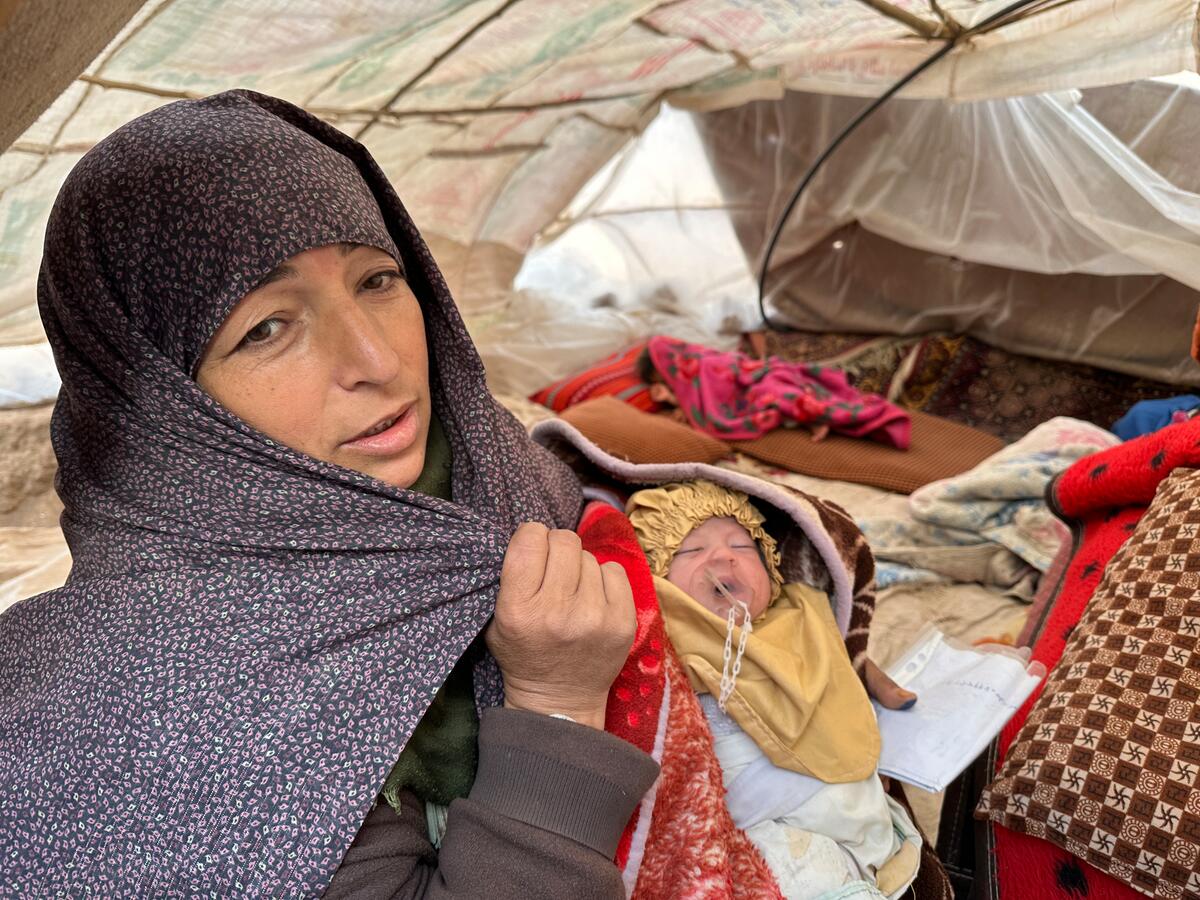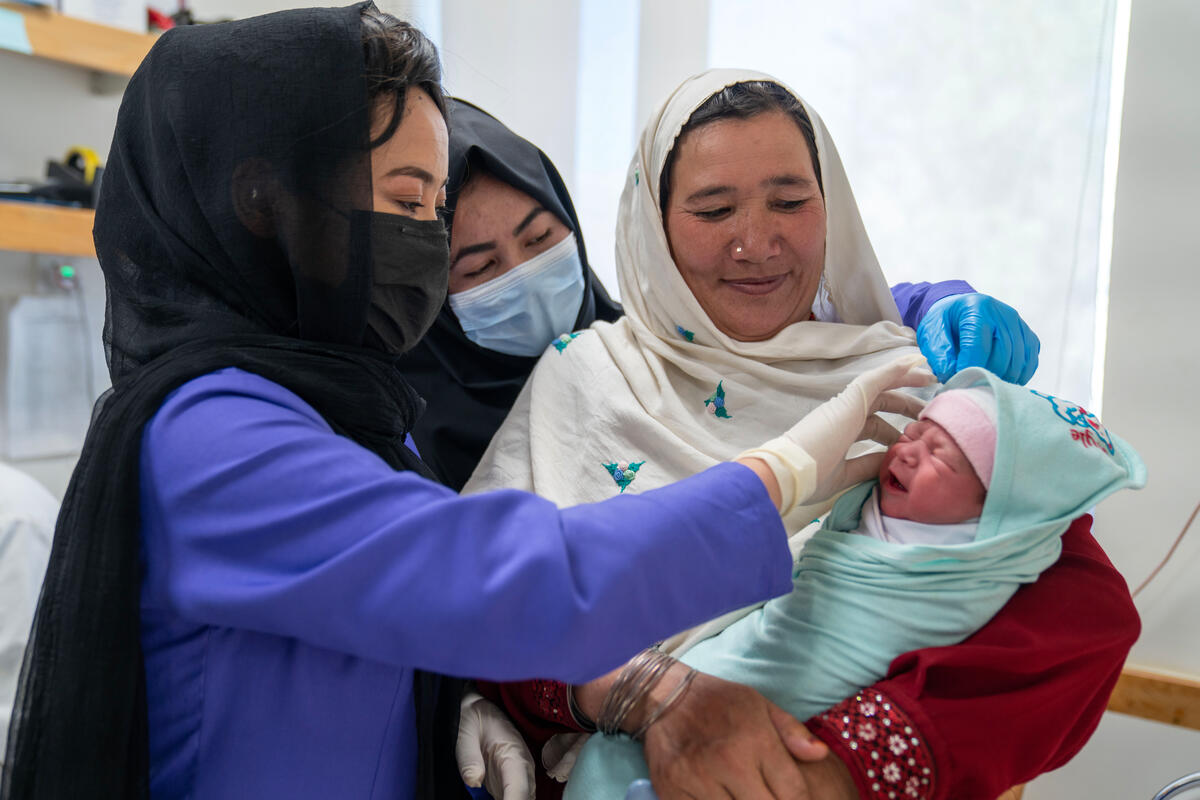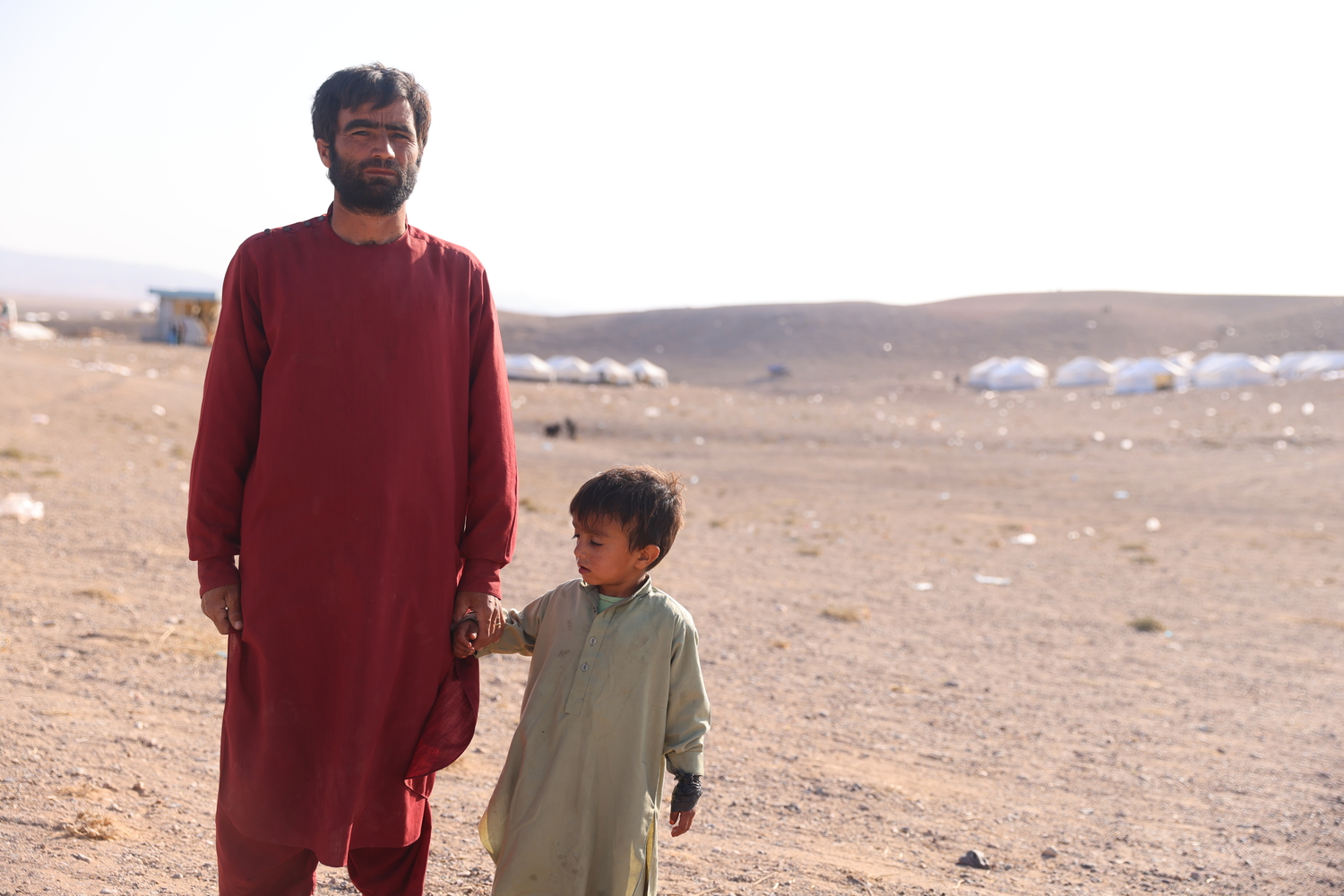Instability delaying return, say Afghan weavers in Balochistan
Instability delaying return, say Afghan weavers in Balochistan

SARANAN REFUGEE VILLAGE, Pakistan, June 4 (UNHCR) - They weave effortlessly, fingers dancing across the loom as they huddle in the shabby shade, their only refuge from the brutal summer heat.
"I don't remember how old I was when I started weaving rugs," said Hazrat Shah, 34, in Saranan refugee village of Balochistan province in south-western Pakistan. Rug weaving is his family business - four out of six brothers now work under a shed made of old sacks on a barren and dusty ground.
It takes them an hour to fix the white woollen threads vertically in their handmade frames on the ground. Then, with great skill, they weave the coloured wool horizontally, and tighten it with a comb-like tool. They complete a rug within two to three days, but for all their digital dexterity, Shah and his family have not been able to weave themselves into the fabric of their adopted home after 27 years.
"For many years, I have been living in this refugee village, with no identity of my own," he said. "Wherever I go, whatever I do, at the end of day I realize I'm a refugee, an alien in a strange land."
The family fled their native Kandahar in southern Afghanistan after the Soviet invasion of late 1979 and have been living in Saranan since 1981.
Until last year, their economic condition was stable. "A rug measuring four-by-two metres was worth 700 Pakistani rupees (US$11)," said Shah. "We used to make good money from our business. But since the prices of everything have soared, we now spend 3,000 rupees just on a 100 kilogramme bag of flour." Yet he feels fortunate: "We are blessed to have a good source of income in a place where most of my country fellows are living from hand to mouth."
Asked if he planned to repatriate, the carpet weaver said, "There is no place in the world like home. But where would you go if your house is ablaze?" He added gloomily, "Today two new graves have been dug for two brothers who were killed in a landmine explosion in Afghanistan." The two youngsters - not related to Shah - had gone to Gereshk in Helmand province the week before to find jobs.
Shah now fears for his elder brother Mahmood, who until last year was helping in the family business but has now gone to Afghanistan to work as a mason. Due to the uncertain security conditions there, Mahmood has left his family in Saranan and visits them occasionally.
The weaver's reluctance to return to Afghanistan is not unusual. Some 80 percent of registered Afghans in Balochistan do not intend to return right now for reasons such as the unstable security situation and lack of livelihood opportunities.
These factors have caused the number of assisted returnees to drop significantly since 2006. "The decline in the number of returnees could be, among other factors, due to the deteriorating security situation in the southern regions of Afghanistan, as the majority of the Afghans in Balochistan come from those areas," said Khalid Mahgoub, UNHCR's field protection officer in Quetta.
Shah's nephew Suleman, 16, has completed his high school education and wishes to go to Mazar-e-Sharif in northern Afghanistan for higher education in human rights and politics. But the prevailing security threats and the ethnic grudges between different groups in Afghanistan have compelled him to pursue his family business in Pakistan instead.
Afghans say they are desperate to return to their homeland, but only if their lives are secure there. "Living a day in one's own country is better than living a thousand years in exile," said Shah. "I'm just waiting for the right time to return to my homeland and throw away the label of a refugee."
So far this year, the UN refugee agency has assisted the voluntary return of more than 120,000 Afghans from Pakistan, some 5,000 of them from Balochistan. Under the UNHCR-assisted voluntary repatriation programme, over 3.3 million Afghans have returned home since 2002. Some 2 million registered Afghans are still living in Pakistan today.
By Duniya Aslam Khan in Saranan Refugee Village, Pakistan








